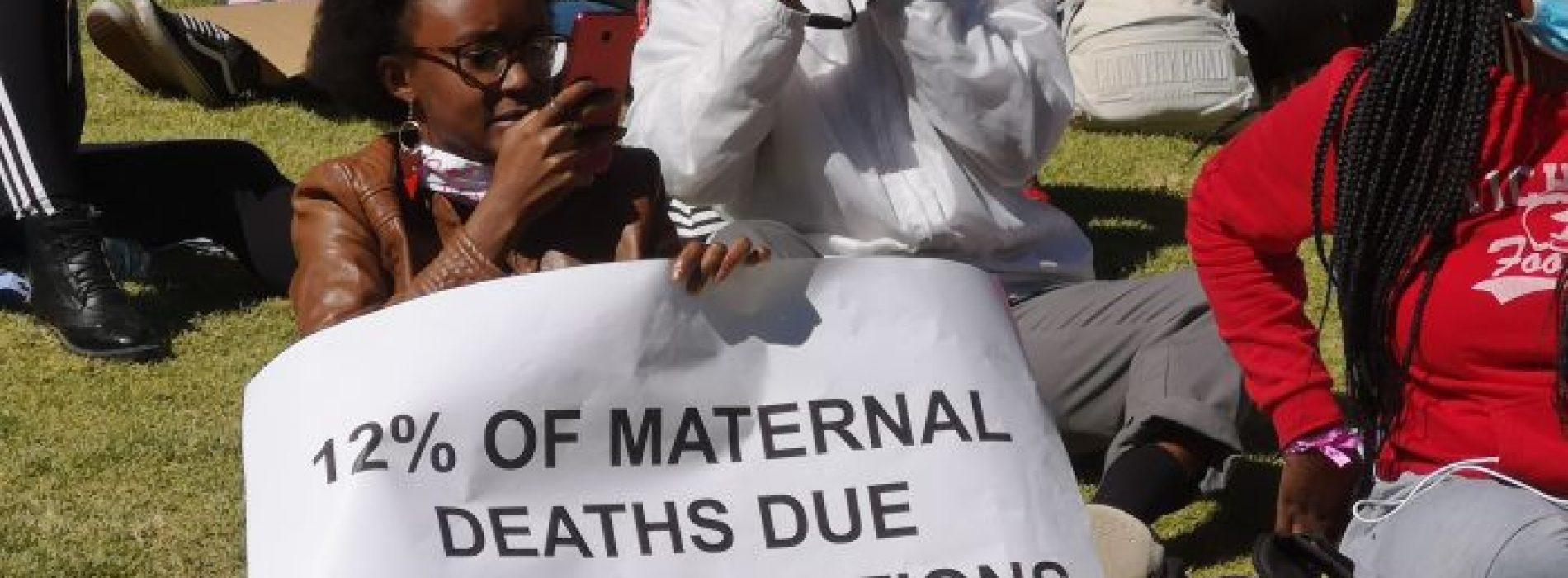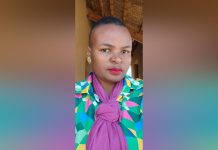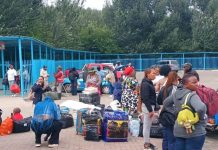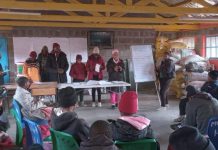Africa-Press – Lesotho. WHEN ’Malillo Moratoe fell pregnant, her boyfriend told her he did not want to have anything to do with her. It was then that her mother and aunt arranged that she terminates the pregnancy.
Moratoe was studying at a university and was on the verge of graduating when she fell pregnant. At the time of the abortion, the pregnancy was already showing.
“They took me to one of the chemists in Maputsoe and paid M600 for the abortion pills,” she said, adding that she was instructed to put two under her tongue and insert one in her vagina and expect results after six hours.
“I did as instructed later that day and I couldn’t sleep at all, I was going up and down hoping it would ease the pain but it didn’t,” Moratoe said.
“I felt like going to the toilet but nothing came out,” she said.
At around 2am, she had abdominal pains and she tried to push trying to quicken the process as advised but it took close to three hours before the fetus could come out.
“The pain I experienced within those hours was unbearable, I even asked God to forgive me and swore never to be intimate with any man again but I guess it was pain talk.
”
She said she released a lot of clots that could make half a bucket before “a white thing” came out.
“Even today, I am still trying to forget how it looked like because I could see that it had a shape of a human being as tiny as it was.
”
The next morning, she said she couldn’t walk and her mother informed her father that she had a miscarriage.
“I could see the regret in my mother’s eyes when she saw the pain I was in, she gave me some pills to ease the pain but they didn’t work.
I was in pain for many days,” she said. “But I had to act strong so as not to make my father suspicious. I even missed classes for the whole week trying to recover.
”
Moratoe said a few months down the line, she found another boyfriend and he impregnated her again.
“Worse, I learnt that he was married when I informed him about my pregnancy.
I felt so stupid for many things, that I had trusted a married man and had not seen any signs during our relationship. ”
“Now that left me devastated and I couldn’t share it with anyone.
”
She said the boyfriend asked a nurse working in one of the government hospitals to sell him abortion pills.
“The price was still the same and I couldn’t tell him about my first experience and still proceeded regardless of how painful my first encounter was.
This time, the pain was triple the first but he was there holding my hand and for some reason I thought he loved me. I never wanted to see him ever again.
He tried apologizing but it was too late. ”
However, she said she has no regrets for the two decisions she made to abort except it ruined her relationship with her father.
“My father even died before we could make peace and that’s my biggest regret. I am struggling to forgive myself…I will never get to see him again and apologise. I feel so guilty,” she said.
“I no longer have a relationship with my mother, she feels like a stranger to me and I really don’t know how to make it up with her.
”
Moselane Ncholu, 17, said she had an abortion two months ago and her mother was not even aware that she was pregnant as she works as a maid in South Africa.
She said she came to Maseru last year to do her Form C. “I was still a good child, a church girl before I befriended the driver who transported me to school every day and introduced me to alcohol,” Ncholu said.
She said she does not really know why she did not say no to alcohol as that man was five years older than her. “I was saying it is a once off thing,” she said.
She said the other day during winter recess this year, her then boyfriend invited her for drinks at Maqalika and it was then that he broke her virginity and impregnated her.
“It was too late because I was already pregnant and I was afraid to inform my aunt,” she said. Then friends encouraged her to abort the pregnancy.
“It felt like I was dying, first I had anal pains and something like extreme period cramps and later saw a big blood clot and I threw it into the toilet.
”
She says she is battling a bout of depression.
“I don’t know if my depression is being caused by regret or breaking up with the guy. I no longer know my worth and I sleep around with any guy who buys me booze.
”
“I hope my school work will not be affected because I can’t afford not to go to school. That would be the end of me. ” The two incidents vividly capture a growing trend among Basotho youths.
They are now pushing a campaign to pressure the government to legalise abortion, a controversial subject in conservative Lesotho. The campaign is being conducted through two community dialogues running under the theme “My Choice, Our Choice”.
The first dialogue was held in Semonkong a fortnight ago while the second one was held this week in Berea district, where some government ministries were also invited.
The two dialogues were preceded by a joint safe abortion national caucus held in March this year where Members of Parliament’s Cluster Committee attended.
About 26 MPs were locked into that ferocious debate which also involved the churches. The primary objective of the dialogue is to get public opinion on factors leading to unsafe abortions and the suggested solutions.
It was at these two dialogues where girls came out pushing for abortion to be legalised, arguing that they are the most affected. *Limpho Kalotsane, 23, from Semonkong says girls resort to unsafe abortions and some end up dying while others suffer health complications.
She said some victims of unsafe abortion dropped out of school because they bleed profusely. For her, legalising abortion could save lives. “It should be legalised but controlled,” Kalotsane says.
*Puseletso Mohanoe from Teyateyaneng is also of the view that abortion should be legalised.
She said it is “an undeniable fact” that many girls are dying owing to unsafe abortions taking place across the country. “To avert this problem abortion should be legalised,” she said.
SAfAIDs Lesotho Focal Person, Advocate ‘Mamofuta Kale, said the issue of unsafe abortions needs urgent attention to save lives. She says young people have shared some touching stories on their experiences regarding the implication of unsafe abortion which they witness frequently.
Some parents are also rallying behind their children in support of legalising abortion, she says. She says she is happy that the issue is gaining momentum “from all angles, particularly the parents”.
Adv Kale said all stakeholders expressed some commitment to address the issues holistically and not only focusing on legalisation. She said what is encouraging is that society is beginning to open up, unlike in the past when morality was always used as a reason to ban abortion.
SAfAIDS is rolling out the regional flagship ‘My Choice: Our Choice’ (MCOC) Campaign as part of its Transforming Lives Programme. Adv Kale said the purpose of “My Choice: Our Choice Campaign” is to persuade policy makers to remove or relax existing restrictions surrounding access to safe abortion, and to eliminate associated stigma and discrimination.
Adolescent Programmes Manager at the Ministry of Health ’Mathato Nkuatsana said the ministry “does not talk about abortion but about termination of pregnancy”.
Nkuatsana says termination of pregnancy is already legal because it is allowed for people who are eligible according to the law. She says the law provides that a sexually molested person or a person who has been impregnated by a family member can terminate pregnancy.
The law, she says, further provides that pregnancy can be terminated where the life of the pregnant mother is deemed to be in danger or where the baby might be born with some disabilities.
Nkuatsana says they have to ensure that health services are accessible to everyone. “This is prevention. We want to prevent people from falling pregnant if they haven’t planned for it,” she says.
Also, health services should be free and user friendly. Nkuatsana says the infrastructure should be proper while staff should be well trained to handle such delicate issues with compassion.
She says a lot of issues have to be considered before the termination of pregnancy is allowed. She says there are some health facilities that do not offer family planning services and in such cases it becomes the responsibility of the ministry to bridge the gap.
Nkuatsana says it is for this reason that the ministry conducts outreach services under the supervision of community based distributors that target mostly youths to allow them to access services freely.
It is at these outreach services where youths can access contraceptives to protect them from unwanted or unplanned pregnancies. “We need to find out why some continue to fall pregnant and want to abort when we are providing free health services.
We are talking about a human being. It is done to a human being,” she says, adding that counselling is vital to help expectant mothers manage the situation.
For More News And Analysis About Lesotho Follow Africa-Press






